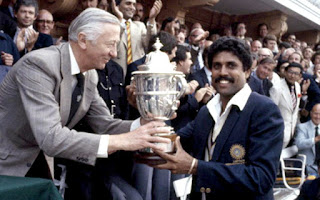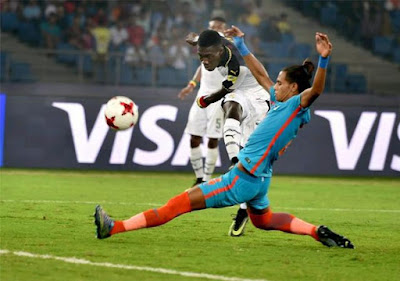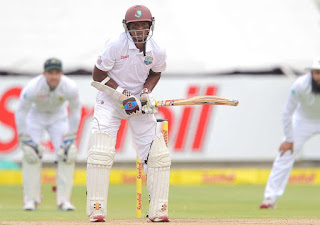The History of the Cricket World Cup Trophy
Cricket is a game that has a long history. Having its origin
from as early as the 16th century when it used to be played in the
rural England mostly by the village children, the game has come a long way
evolving from just a rustic game for killing boredom to a full-fledged
professional sport with ample lot of technological innovations. Besides, on
field innovations, the popularity of the game also gave rise to many online
cricket games, especially FantasyCricket which nowadays is stealing the show. This is a game where users in
order to play fantasy cricket just
need to select players whom he thinks will play well and build his team. The
real life performance of the actual players on field will earn the users credit
points; winner will be the one with most points. Hence, like many other
innovations the cricket world cup has also evolved through time.
World Cup was held for the first time in the year 1975. Back then there were just six teams competing in the World
Cup and the tournament itself was not as popular as it is now. As the
tournament grew in popularity, there came changes in whole rules and
regulations of the game. Along with these, the tournament trophies also changed
and evolved.
Prudential
Cup
The World Cup trophy was initially named after the sponsors, thus in the first three editions of World Cup that were held in England (1975, 1979 and 1983) the world cups were better known as Prudential Cups as Prudential plc (a UK-based financial services company). The trophies for all the three world cups were called Prudential Cups and similar trophies were lifted by Clive Lloyd in 1975 and 1979 and by Kapil Dev in 1983. Actually, the name world cup was not even used as only 19 countries participated in the tournament. India won the Prudential cup in 1983 by defeating West Indies.
Reliance
Cup
Like I mentioned before, world cup name was mainly determined by its sponsors in the host country. Accordingly, in 1987 world was held for the first time in a country that is not England. In this year the world cup base was shifted from England all the way to India where it was sponsored by Reliance. Having a change in sponsor the tournament also had its name changed into being called the Reliance Cup. Allan Border of Australia lifted the trophy in 1987.
Benson
and Hedges Cup
Again the name and host of the world cup changed; along with it changed the name. The Benson and Hedges Cup was held in Australia and New Zealand. This remains the only world cup where the trophy was not made of metal but with crystal. While this was named the Benson and Hedges World Cup, there were subsequent Benson and Hedges Cups held every year from 1992 to 2002. This remains one of cricket's longest sponsorship deals.
Wills
World Cup
In 1996 the world cup tournament again came back to the Indian subcontinent when the tournament was jointly hosted by India, Pakistan and Sri Lanka. This tournament had 12 teams for the first time and 'quarter-finals' were introduced. Sri Lanka emerged as the winner of the tournament.
ICC Cricket World Cup Trophy
The year 1999
marked the end of the era of title sponsors. For the first time the ICC Cricket
World Cup Trophy came into play and has been
the trophy awarded since then. This
trophy was produced by a team of craftsmen from Garrard & Co in London over
a period of 2 months. This magnificent trophy is made of gold and silver
and weighs approximately 11 kgs and it stands 60cm high. The three
silver columns of the trophy are shaped as stumps and bails and they represent
batting, bowling and fielding. The original trophy is housed by ICC and a
replica is permanently awarded to the winning team. The replica is identical to
the original in all but two aspects: the original has the ICC logo while the
replica has the event logo and the original has the inscriptions of the
previous champions. Australia won this trophy in 1999, 2003 and 2007 while
India took it home in 2011.
Thus is the journey of the Cricket World Cup trophies from a
sponsor driven element to becoming the actual symbol of the sport.








Comments
Post a Comment